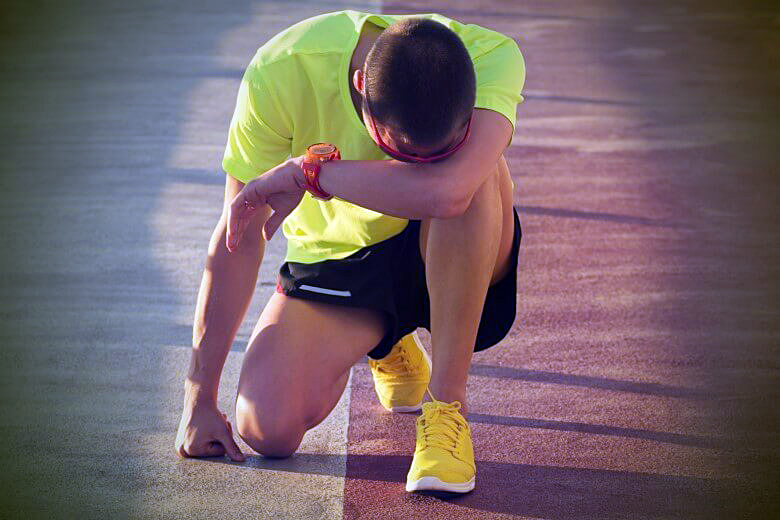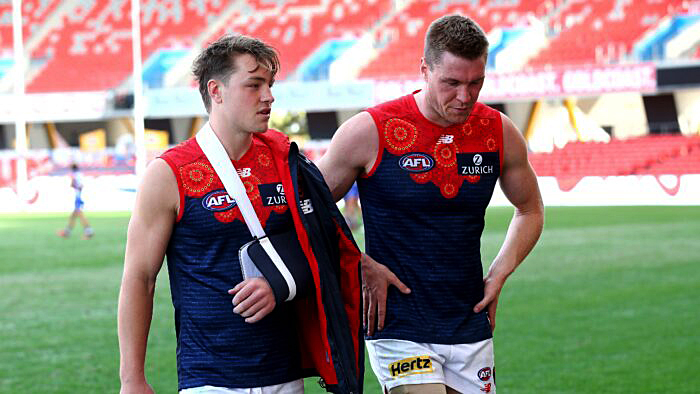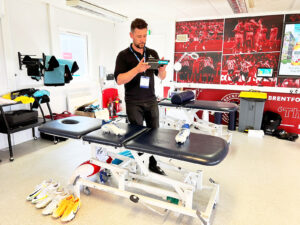When a person or an athlete gets injured physically, the stress and trauma leading to mental health disorders or issues are often overlooked or neglected. But, this ‘invisible injury’ needs to be addressed for overall fitness
When it comes to recovery from physical injury, it isn’t only about getting physically fit alone. It is equally important to recover from the mental stress and trauma caused by the injury. Often it is observed that people pay a lot of emphasis to physical recovery and visit physiotherapists/ doctors. But, not many consider the impact an injury has on a patient’s mental health.
It needs to be noted that when mental health is poor, recovery from the injury often takes longer time or sometimes doesn’t occur at all. Researchers have laid immense emphasis on addressing issues related to mental health, alongside taking steps to heal the injury.

Factors that Contribute to Poor Mental Health
According to researchers, physical injury and mental health are closely associated. A serious injury can often cause mental health problems. These issues or problems can range from depression, anxiety to post-traumatic stress disorder (PTSD). But, how is mental health affected?
After injury, a patient’s mental health can suffer due to various reasons. It is sometimes observed that the pain and time spent in hospital lead to depression. A patient may also suffer from PTSD. The injury affects the daily life and activities of a patient. This causes psychological problems. Due to restricted and reduced mobility, a patient isn’t able to leave the house and socialise with friends and family. When the injury compels a person to stop work, they are likely to lose the social connection. This may generate a feeling of loneliness and uselessness in them.

In some cases, the patients are driven to depression as they realise that they would never recover fully. The alteration in lifestyle is not an easy thing to be adjusted or adapted to. Furthermore, a patient may be worried about his or her short-term or long-term financial situation.
A section of mental health experts believes that three months after a traumatic injury, one in three people is likely to experience severe depression. People who have suffered a traumatic brain injury are prone to depression. Spinal cord injury patients are at greater risk of developing anxiety and depression.
Additionally, mental health issues can be further complicated and exacerbated when physical injuries result in a loss of skills and opportunities. For instance, if the patient is unable to participate in everyday activities such as work, study and socialising; worries about finances and the future increase and he or she is therefore at an emotionally vulnerable position. I In some cases, an individual may be an athlete and his or her career may be at stake or risk.
Sports psychology research indicates that when an individual is physically injured, there is a normal initial emotional reaction. This includes processing the medical information provided by the physician or medical team about the injury as well as coping up emotionally with the injury and any possible surgeries. But, how will an individual respond to injury? This may differ greatly. There is no predictable sequence or reaction. Reaction varies from person-to-person and circumstances.

How to heal the mind?
A sports medicine expert or athletic trainer must look for certain signs to determine the mental health of their patient. These include sadness or depressed state; athletes who are not excited to go to practice or physical therapy visits; athletes who are missing practice or rehab and athletes who indulge in negative self-talk. There are several techniques for helping injured athletes overcome fears, including the following:
- Imagery: A physically-healed athlete may be worried about chances of getting injured again and thus hesitant to play. Therefore, they must be encouraged to visualise being back in the game. The images of catching a pass, dunking a basketball or being able to cut and tackle must be constantly reminded. These images take them out of the present. They help them focus on the future. It is also advisable to show them previous video reels from games or practices. They must be reminded of how they performed.
- Keeping the athlete near the game: Trainers must make the rehab mobile. They must work with athletes on the sideline of their field or court. They should be close to the action while healing.
- Positive self-talk: Instead of saying—‘I’m never going to be back,’— they must be made to think and believe that ‘I’m going to come back stronger’
- Showing physical proof of healing: Special emphasis must be given on building trust. Athletes should be motivated to trust their bodies after an injury. They can be shown new X-rays or test results that confirm they are physically healthy.




